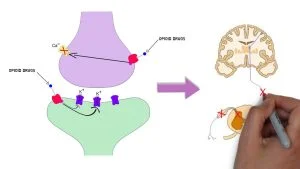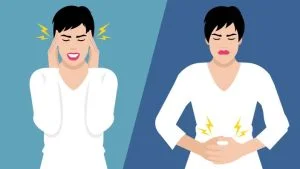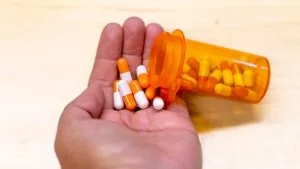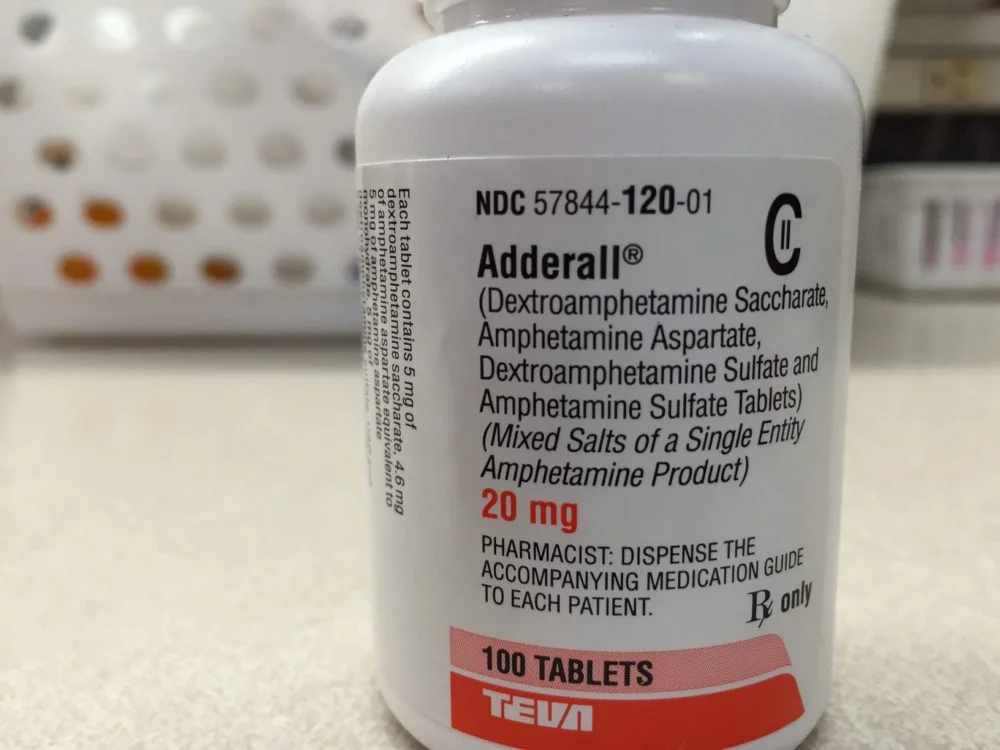Amphetamines Adderall is a drug used to treat ADHD and narcolepsy, as well as to manage the symptoms of depression. The drug is a combination of amphetamine and dextroamphetamine that affect the neurotransmitters dopamine and norepinephrine.
Contents
- 1 What Are Amphetamines Adderall?
- 2 What is Amphetamine?
- 3 How Does Amphetamine Work?
- 4 How Does Adderall Work?
- 5 Side Effects of Amphetamine Adderall Use
- 6 Withdrawal Symptoms
- 7 Why Amphetamines Adderall Is Dangerous?
- 8 Adderall Abuse vs Addiction
- 9 Effect Of These Drugs
- 10 Risks Associated With Taking Adderall Without a Prescription
- 11 How To Get Help For amphetamines Adderall Addiction?
- 12 Other Similar Drugs
- 13 Recovery Time For Amphetamine Addiction
- 14 Conclusion
- 15 A Word From Therapy Mantra
What Are Amphetamines Adderall?

Amphetamine Adderall is a combination of drugs, which are both stimulants. They affect the neurotransmitters in the brain, especially dopamine and norepinephrine. Amphetamines are primarily used to treat attention deficit hyperactivity disorder (ADHD) and narcolepsy, as well as to manage symptoms of depression.
Amphetamines Adderall is a type of drug that is used to treat ADHD and narcolepsy, as well as to manage the symptoms of depression. The drug is a combination of amphetamine and dextroamphetamine that affects the neurotransmitters dopamine and norepinephrine.
What is Amphetamine?
Amphetamine is a stimulant that affects dopamine levels in the brain – this means that it makes people feel good and boosts mood, increasing energy and focus which therefore allows people to increase productivity at school or work or before social events such as parties. Many individuals use amphetamines Adderall because they are looking for a quick rush of energy so they abuse it during the day to stay awake or at night as a recreational drug at bars or raves.
How Does Amphetamine Work?
Amphetamines Adderall increase dopamine levels in the brain which causes improved mood, focus, and increased energy – these effects on dopamine explain why people often abuse amphetamines Adderall at work or school to increase productivity or before social events so they have more confidence. People will often smoke cigarettes while using amphetamines Adderall because nicotine also increases dopamine levels, so the use of amphetamines Adderall can be extremely addictive due to the combination of two highly psychoactive substances, making it very difficult for people to withdraw from use without help.
How Does Adderall Work?

Amphetamine-based stimulants such as Adderall can make people feel more alert, focused, and energetic due to their effect on dopamine levels in the brain. Dopamine is a neurotransmitter that causes feelings of pleasure within the brain, so by increasing dopamine levels Adderall makes people feel good and boosts mood which is why it’s commonly abused for recreational purposes or used as a study aid at school or work – people may also smoke cigarettes while using amphetamines Adderall because nicotine also increases dopamine levels.
The amphetamines in Adderall work by increasing the amount of dopamine and norepinephrine in the brain. This increases alertness, focus, and energy, as well as decreases appetite and fatigue.
What are the side effects of Adderall?
Adderall side effects can include anxiety, irritability, weight loss, insomnia, and nausea – Adderall may also cause some people to feel euphoric which is why it’s sometimes abused by those looking for a quick rush of energy or by people who are depressed/ stressed as it increases their levels of focus.
Side Effects of Amphetamine Adderall Use

Some milder side effects include feeling restless or irritable, increased heart rate and irregular breathing as well as hallucinations. More severe side-effects include stroke from blood vessel constriction, aggressiveness, and hyperactivity due to constant overstimulation. Also, the withdrawal symptoms that begin after it wears off could potentially lead to severe depression. There are a number of side effects that can occur from using amphetamines Adderall, including:
- Insomnia
- Nausea and vomiting
- Headache – this can be accompanied by changes in appetite, weight loss and/or trouble focusing on specific tasks.
- Aggressiveness and irritability Hallucinations
- Rapid heartbeat and irregular breathing
- Stroke due to constriction of blood vessels
Withdrawal Symptoms
Amphetamines Adderall withdrawal symptoms include fatigue, depression, and difficulty sleeping which can lead to relapse if not carefully monitored by a healthcare worker during detoxification. Amphetamine treatment plans generally involve using psychological therapies such as counseling and therapies which help people recover from addiction by changing their behavior and thinking patterns which reduce the risk of relapse. Withdrawal symptoms such as depression, begin after the drug wears off. These include:

- Fatigue
- Depression
- Hallucinations
- Irritability
- Aggressiveness
- Insomnia
- Sweating
- Loss of appetite
- Weight loss
Why Amphetamines Adderall Is Dangerous?
Adderall is a drug that acts as both a central nervous system stimulant as well as functioning as a reuptake inhibitor for certain neurotransmitters such as norepinephrine and dopamine. This means that the brain levels of these neurotransmitters increase, causing one to experience effects such as improved mood or heightened concentration, focus, or awareness – these positive effects are what lead people to become addicted to amphetamines Adderall.
As mentioned above, amphetamines Adderall are harmful if taken without a prescription by people for purposes other than intended use. This misuse can lead to addiction which is characterized by increased tolerance and the need to take larger amounts of Adderall daily in order to avoid withdrawal – this leaves you extremely vulnerable to overdose if too much Adderall is taken at once. Adderall addiction manifests itself in several ways including increasing dosage amounts, increasing frequency of doses, or mixing it with other drugs/substances that could potentially be toxic or even deadly when mixed together.
Amphetamine addiction treatment requires medical supervision throughout the rehabilitation process to ensure your safety while improving your chances for success in recovery from addiction.
Adderall Abuse vs Addiction

Many people take amphetamines Adderall for purposes other than their intended use – either not following the instructions given by their doctor, increasing dosages above what they’re supposed to take, or mixing them with drugs/alcohol for an enhanced effect. These are signs of abuse but could lead to addiction if they are repeated long-term.
If you have addicted to amphetamines Adderall, it’s important that you seek help from your doctor or find a support group near you. There are several ways that people can stop taking the drug – gradually stopping their use, switching to an alternative medication prescribed by their doctor, or going through treatment for addiction which includes counseling and therapeutic techniques.
Addiction is a disease that affects the brain’s reward system and takes over a person’s central nervous system, leaving them powerless to resist their need for Adderall.
Signs Of Addiction To Amphetamines Adderall
Adderall is considered both physically and psychologically addictive. Signs of addiction include:

- Fatigue
- Difficulty concentrating
- Agitation
- Anxiety
- Decreased motivation
- Sleep problems
This often leads to taking more of the drug to alleviate these symptoms, which can lead to severe addiction.
Adderall addiction can be hard to deal with as it requires professional intervention from a healthcare worker, family member, or friend. It may also require going through withdrawal symptoms which include depression, fatigue, and difficulty sleeping among other things. Treatment programs can help people recover from this addiction by using therapies such as counseling and therapeutic techniques.
Effect Of These Drugs
The main ingredient in Adderall is amphetamine dextroamphetamine which affects the neurotransmitter dopamine and serotonin levels in the brain. The neurotransmitters associated with this drug allow for increased focus, concentration, energy levels, and motivation. When you first begin taking Adderall, you should start to notice a decrease in your symptoms, and the duration of these effects typically lasts about four hours.
Risks Associated With Taking Adderall Without a Prescription
Taking amphetamines without a prescription is illegal and can result in harsh legal penalties. It can also be dangerous because it may be made with other substances that are toxic, such as household cleaners. This could lead to liver damage or death due to poisoning or overdose.
Taking Adderall without a prescription is considered illegal and can be dangerous as it may not contain what the label says it contains or could be mixed with other drugs/substances that are toxic, such as household cleaners which could cause liver damage or even death by poisoning or overdose.
How To Get Help For amphetamines Adderall Addiction?

If you suspect that you or a loved one is addicted. Then you should contact your doctor as soon as possible for further information on how to get help. You can also visit treatment centers or hospitals that specialize in treating addictions. Where professionals will have the knowledge and tools necessary to help those impacted by addiction. It’s important to remember that Adderall addiction can be a dangerous condition that requires professional care from a trained medical professional.
The treatment process may vary depending on how long someone has been taking Adderall and their overall health. Some people may be able to stop taking Adderall easily, while others may require more lengthy and difficult methods. Treatment plans generally involve using psychological therapies such as counseling and behavioral therapies. This helps people recover from addiction by changing their behavior and thinking patterns.
Unfortunately, currently aren’t any home remedies for amphetamine addictions available without medical supervision. The only treatments available involve using therapies such as counseling and behavioral therapies with medical supervision during withdrawal to ensure safety and increase chances of success when returning to normal life without Adderall.
Other Similar Drugs

Amphetamines Adderall is similar to drugs such as MDMA, cocaine, and methamphetamines due to their highly addictive nature. They function in the same way by increasing dopamine levels. But they differ in that Adderall is a prescription drug that people can get from a doctor if they have ADHD or narcolepsy. Whereas the others are illegal drugs that drug addicts often purchase on the streets.
Adderall contains both dextroamphetamine and levoamphetamine salts. This means that it’s a combination drug containing both an active ingredient (dextroamphetamine) and a minor ingredient (levoamphetamine). This combination makes it unique when compared to other drugs such as cocaine or MDMA. For example, which only contains one active ingredient which people often abuse because it has a euphoric effect.
Recovery Time For Amphetamine Addiction

The length of time it takes for one to recover from an addiction to Adderall will depend on uncertain things. Like how long they’ve been taking the drug, what other substances are they taking at the same time, and their overall physical/mental health. Some people may be able to stop Adderall after a few days or weeks. While others may take months or years before feeling physically ready to withdraw.
Amphetamine withdrawal symptoms include fatigue, depression, and difficulty sleeping. That can lead to relapse if not carefully monitored by a healthcare worker during detoxification. Amphetamine treatment plans generally involve using psychological therapies. Such as counseling and therapies which help people recover from addiction by changing their behavior and thinking patterns. As this reduces the risk of relapse.
The full recovery timeline will depend on how long one has been abusing amphetamines Adderall. how much they were taking each day, among other factors. Some people may only need a few days or weeks before feeling better. While others can take months or years before feeling physically ready to withdraw from addiction. Amphetamine withdrawal symptoms can lead to relapse if not carefully monitored by a healthcare worker during detoxification. So it is important that you seek help when attempting to recover from addiction in order to increase your chances for success and avoid relapsing in the future.
Conclusion
Amphetamines and Adderall are drugs that increase levels of dopamine in the brain, which causes an intense feeling of euphoria. Amphetamine abuse can lead to addiction and other side effects such as psychosis, mood swings, depression, paranoia, anxiety attacks, and delusions. Amphetamine abuse can cause damage to the brain, liver, heart, and blood vessels. Adderall addiction is very similar to amphetamine addiction.
A Word From Therapy Mantra
Your mental health — Your psychological, emotional, and social well-being — has an impact on every aspect of your life. Positive mental health essentially allows you to effectively deal with life’s everyday challenges.
At TherapyMantra, we have a team of therapists who provide affordable online therapy to assist you with issues such as depression, anxiety, stress, workplace Issues, addiction, relationship, OCD, LGBTQ, and PTSD. You can book a free therapy or download our free Android or iOS app.


